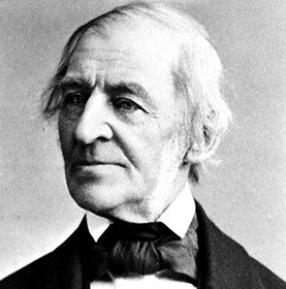 To William James
To William James
Hôtel Foyot
Paris. December 6, 1905
Now that I am launched I will say a word about some of the criticisms in your letter. You are very generous; I feel that you want to give me credit for everything good that can possibly be found in my book. But you don’t yet see my philosophy nor my temper from the inside; your praise, like your blame touches only the periphery, accidental aspects presented to this or that preconceived and disparate interest. The style is good, the tone is supercilious, here is a shrewd passage, etc, etc. And you say I am less hospitable than Emerson. Of course. Emerson might pipe his wood-notes and chirp at the universe most blandly his genius might be tender and profound and Hamlet-like, and that is all beyond my range and contrary to my purpose. I am a Latin, and nothing seems serious to me except politics, except the sort of men that your ideas will involve and the sort of happiness they will be capable of. The rest is exquisite moonshine. Religion in particular was found out more than too hundred years ago, and it seems to me intolerable that we should still be condemned to ignore the fact and to give the parsons and the “idealists” a monopoly of indignation and of contemptuous dogmatism. It is they, not we, that are the pest; and while I wish to be just and to understand people’s feelings, whereever they are at all significant, I am deliberately minded to be contemptuous toward what seems to me contemptible, and not to have any share in the conspiracy of mock respect by which intellectual ignominy and moral stagnation are kept up in our society. What did Emerson know or care about the passionate insanities and political disasters which religion, for instance, has so often been another name for? He could give that name to his last personal intuition, and ignore what it stands for and what it expresses in the world. It is the latter that absorbs me; and I care too much about mortal happiness to be interested in the charming vegetation of cancer-microbes in the system—except with the idea of suppressing it.
I have read practically no reviews of my book so that I don’t know if any one has felt in it something which, I am sure, is there. I mean the tears. “Sunt lachrimae rerum, ac mentem mortalia tangunt.” Not that I care to moan over the gods of Greece, turned into the law of gravity, or over the stained-glass of cathedrals broken to let in the sunlight and the air. It is not the past that seems to me affecting, entrancing, or pitiful to lose. It is the ideal. It is that vision of perfection that we just catch, or for a moment embody in some work of art, or in some idealised reality: it is the concomitant inspiration of life, always various, always beautiful, hardly ever expressible in its fulness. And it is my adoration of this real and familiar good, this love often embraced but always elusive, that makes me detest the Absolutes and the dragooned myths by which people try to cancel the passing ideal, or to denaturalise it. That is an inhumanity, an impiety, that I can’t bear. And much of the irritation which I may betray and which, I assure you is much greater than I let it seem, comes of affection. It comes of exasperation at seeing the only things that are beautiful or worth having treated as if they were of no account.
I seldom write to anyone so frankly as I have here. But I know you are human, and tolerant to anything, however alien, that smells of blood.
From The Letters of George Santayana: Book One, [1868]-1909. Cambridge, MA: The MIT Press, 2001. Location of manuscript: The Houghton Library, Harvard University, Cambridge MA.
